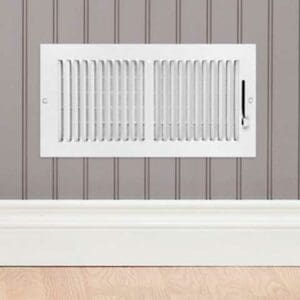Do Air Purifiers Work?
 Air quality has a tangible impact on our health and well-being. In recent years, more people than ever have become concerned about the air they breathe, especially in the sanctuary of their own homes.
Air quality has a tangible impact on our health and well-being. In recent years, more people than ever have become concerned about the air they breathe, especially in the sanctuary of their own homes.
Enter air purifiers – the sleek, modern-day knights that promise to slay the invisible dragons of airborne contaminants, helping us breathe easy. But beneath the marketing claims and the soothing hum of these running devices, do they truly stack up to their reputation? Do air purifiers work? Here’s a look at the truth about air purifiers.
The Anatomy of Air Quality Concerns
From the proliferation of allergens to the ceaseless march of airborne viruses, there are myriad reasons why homeowners are looking for ways to improve their indoor air quality. Allergy sufferers, people with respiratory conditions, and those with general health concerns are particularly keen to find solutions that offer relief and protection.
Yet, with so many products on the market competing for our attention, the big question remains – how effective are these devices at truly purifying the air?
Unpacking the Mechanisms of Clean Air
First, let’s take a look at the science behind air purification. Modern air purifiers often use a combination of methods to remove a broad spectrum of pollutants.
Filtration, the oldest and most trusted method, physically strains particles from the air. A true HEPA filter, for instance, can trap 99.97% of particles as small as 0.3 microns.
Ionization, meanwhile, electrically charges particles, causing them to fall onto surfaces or get trapped in the air filter, effectively removing them from circulation.
Lastly, UV-C light combats germs by disrupting their DNA and rendering them incapable of reproduction. When effectively deployed, UV-C technology can significantly reduce the presence of viruses and bacteria in the air.
Each method has its strengths when it comes to particular particles, but their combined use can significantly enhance the overall purification process.
Choosing Wisely in the World of Air Purifiers
The choice of an air purifier depends on the pollutants you aim to eliminate and the size of the room you’re aiming to purify.
They come in different makes and models, each aimed at tackling specific pollutants in distinct ways. The most common types include HEPA (High-Efficiency Particulate Air) purifiers, which use fine mesh filters to capture particles like dust, pollen, and pet dander; ionizers, which charge particles, causing them to stick to surfaces; and UV-C purifiers, which zap germs with ultraviolet light.
Start by considering the size of the room and match it with the purifier’s Clean Air Delivery Rate (CADR) to ensure efficiency. The type of filter is another critical factor; more complex filtration systems often come with a high price tag but offer better protection against a wider range of pollutants.
Energy consumption is a growing concern too, with many manufacturers striving to produce more energy-efficient models. Balance the upfront cost with the long-term implications on your electricity bill.
The Verdict on Air Purifiers Efficacy: Do Air Purifiers Work?
But does this mean cleaner air? The short answer is yes, with a side of ‘it depends’.
Multiple studies have affirmed the ability of air purifiers to reduce particle concentration in enclosed spaces. This reduction can translate to a tangible improvement in air quality, especially for individuals who struggle with allergies or respiratory issues.
For example, users have reported a noticeable difference in air quality after introducing an air purifier into their homes. Reduced sneezing, quieter nights, and overall comfort are common benefits cited. Additionally, businesses and healthcare facilities have found success in using air purifiers to create a safer environment for their patrons and patients.
Research also suggests that air purifiers may help in containing airborne viral particles, making them a potent tool in the fight against respiratory illnesses. However, it’s important to note that no air purifier can guarantee complete protection from infections, and other measures like vaccinations and good hygiene remain crucial.
The Gray Areas of Air Purification
Despite the positive reports and scientific backing, air purifiers do have their limitations. They’re not miracle workers and cannot substitute for regular home cleaning or good ventilation practices.
Air purifiers are also not one-size-fits-all solutions. Often, a combination of approaches, including humidity control and targeted cleaning, is necessary for optimal indoor air quality.
There are also specific scenarios, like high-pollution events or in the presence of certain harmful gases, where purifiers may be less effective. In these cases, preventative steps and evacuation of the affected area are more prudent measures.
Aligning Air Purifiers with a Healthy Home Strategy
Air purifiers do indeed work, but they are just one piece of a larger puzzle when it comes to creating a healthy indoor environment. They can effectively reduce the burden of particles and pathogens in the air, providing relief to many.
However, investing in the best air purifier your budget allows and pairing it with maintenance, good housekeeping, and other air quality-improving strategies is the most comprehensive approach.
![]()

